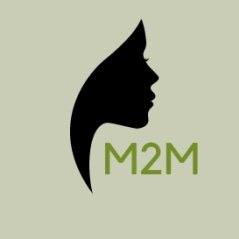Mentoring Cafe - How You Can Benefit as an Independent Scholar

Two of the most significant approaches to obtaining a doctorate are located with the US and UK. Learn more about both programs below for doctoral candidates of religion.
The US Approach for Doctoral Students
In the former, doctoral students have two years of seminars (or coursework) before they begin to write within their own specialty. Typically, PhDs in Theology, for example, would take 5-7 years.

Because America continues to rely heavily upon exams as a primary structure of education, these occur frequently in many doctoral programs. However, it is possible to opt out of exams in favor of teaching for a small stipend.
Doing this allows doctoral students to populate their CVs with evidence of their teaching ability while also developing confidence in the way they speak about "my students" and "my pedagogical approach." This teaching focused approach in the US is often quite thorough with many doctoral candidates receiving continued support after the degree is awarded.
That continued support is what ensures they move from graduate to a postdoctoral post (reserved for those who have earned their doctorate within the last 5 years), fellowship (some are paid and others unpaid) or a Professorship/Lectureship. US doctoral students produce what is called a "doctoral dissertation" and they are often encouraged to engage in the process of publishing that work.
The UK Doctoral System for Religious Doctoral Candidates
By contrast, the UK system equates the Masters level students with the US doctoral students. Their Masters level students produce a written research paper called a "dissertation," but their doctoral students produce a "doctoral thesis" as their research paper. In the UK, prospective students from other countries are often required to take a one year Masters Degree course first and then pass an oral examination or "Board Review." If successful, they are then able to start their PhD program by writing their thesis with the assistance of 1-2 supervisors. Most academics readily admit that it can take 2-3 years for people who have recently obtained their PhDs to actually land a position.

In both instances, it is becoming more common to see scholars with recently bestowed PhDs feeling a bit lost. They may feel they struggle to secure support from people who are "too busy" to write a letter of support. There is a sense that their futures were mortgaged with high-interest loans that, without a secure source of income, can never be satisfied.
Economic Precarity
This creates both economic precarity and inner turmoil - what are you to do with your life next? How can you use that training about which you are passionate?
And, if you are a doctoral student, what can we share today, to help make you stronger by the time you complete your program?
Independent Scholars
One option is to prepare yourself to be an Independent Scholar. The paid posts for this "job" will include: Visiting Scholar, Research Fellow and Teaching Fellow.
If you are prepared to become an Independent Scholar, there are myths with which you should be acquainted so that they do not become obstacles.
While being an "independent" means you are on the margins, it doesn't mean your contributions lack relevance. On the contrary, you can work across the hall from a Junior Lecturer who has to teach five classes, engage with extensive marking systems, meet students, and spend time on committees.
Benefits for Independent Scholars
Those colleagues who have a full time lectureship, for example, are still expected to produce academically rigorous writings, conduct original research and speak at conferences. You are an independent scholar who has to just produce the writing and research. You do not have to meet with students, and you are not marking papers (unless you are working as a Teaching Fellow). You use your immediate funding to provide support for your research projects.
The university where you are a Research Fellow or Visiting Scholar will provide you with support including: copy machine access, WiFi and unfettered access to both online and physical libraries, a team to assist you with your grant writing (usually at least two colleagues who provide content review of your work and suggestions, and also someone who will construct the budget for you). Click here to learn more about independent scholars, and the role interdependence can play in your vocational call.

Call to Action
While we offer both free and paid subscriptions, we do ask that you will at least support us by clicking "like" (the heart icon) and sharing the post with others today. We also ask that you join us on:
Substack
, Twitter @misogynoir2mishpat and Facebook.
The Misogynoir to Mishpat (M2M) Research Network © 2023




